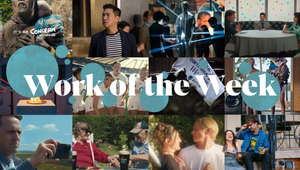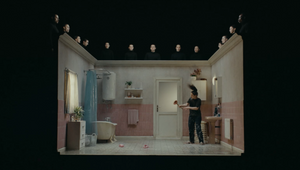
Supreme Music Celebrates 15th Birthday

Supreme Music is turning 15 years this year. And what a ride it was so far! From making friends with advertising agencies, their amazing creatives, production houses and directors, having the honour to add emotion through sound to stunning commercials and winning some shiny trophies and industry recognition while growing and expanding as a team of passionate thinkers and makers.
Time to reflect. Kat Wyeth, VP of growth and strategy at Supreme Music, is summarising some insights and observations on trends in the advertising music industry that will continue to influence the next 15 years.
“Advertising has always reflected zeitgeist and at the same time created zeitgeist. These days even more than ever. Because the tasks of people making and crafting advertising are getting blurred and mixed. They are artists and thinkers and very often have another creative venture on the side. Camera people are also technicians, editors are programmers, copywriters and art directors are learning the language of prompting and all of them are becoming some kind of creative technologist, collaborating more and more with people from all kinds of different areas to explore new ways of creating, distributing and consuming advertising.
And this is, of course, also reflected in the way production, rsp. music production, is changing. AI is omnipresent when speaking about creative processes and future ways of creating in general. But some of the notable trends and shifts that were occurring in the music and creative industry over the last years are due to many more cultural, environmental and political circumstances.
Firstly, digitalisation itself is defining the way we produce and distribute music. The proliferation of digital technology has drastically changed the way music is produced, distributed, and consumed. Digital audio workstations have become more accessible, enabling musicians to create professional-quality music from anywhere. Additionally, streaming platforms have transformed the music distribution landscape, impacting how artists monetise their work and how listeners access and discover new music.
Due to the global pandemic, the way we work together has noticeably changed, too. It’s all about collaborative and remote work! Musicians are now used to collaborate in real time from different parts of the world, sharing ideas, tracks, and production elements online. This has expanded creative possibilities and allowed for diverse influences to shape music.
No wonder, musicians have been increasingly blending genres and styles, resulting in a more fluid and diverse musical landscape.
And, of course, the emergence of AI and Machine Learning - and its incredibly fast development- contribute to content being generated much quicker. Artificial intelligence and machine learning have started to play a huge role in music creation, composition, and even performance. AI tools can generate music, based on patterns and data, and they can assist musicians in exploring new creative directions.
At the same time the focus on authenticity and storytelling are progressively more important. There has been a renewed emphasis on authentic storytelling in music. This shift aligns with a desire for more genuine and relatable content.
Very important to mention is also the sustainability and social impact our creations are having. Musicians and the industry as a whole have been more and more mindful of this. Considerations such as eco-friendly music productions, socially conscious lyrics, and support for various social causes are all influencing the music landscape.
Also, the use of Virtual Reality and Immersive Experiences are fuelled by this eco-friendly mindset. Artists are exploring immersive and interactive performances that leverage these technologies to engage audiences in new ways.
New performance stages have sprung up: in-Gaming events and Esports platforms are the new mega-stadiums. Metaverses are also new playgrounds and are yet to be fully discovered.
It's important to note that success in music is subjective and can take various forms, whether it's achieving mainstream recognition, building a strong indie following, or making a meaningful impact within a specific niche, writing scores for film or advertising or anything in-between. While these insights can provide a general understanding, the future of music remains unpredictable, which is the beauty of this artistic form of human communication.
As far as music is concerned, I believe that all forms of creativity, breaking of boundaries, persistence and resilience will remain essential - no matter how music will be produced, distributed or consumed. Artists who are open to exploring, pushing and never tiring of their craft will be the ones, whose creativity will invent the music of tomorrow.
The next 15 years will be equally exciting for the industry and Supreme Music - let’s all keep exploring together.”















